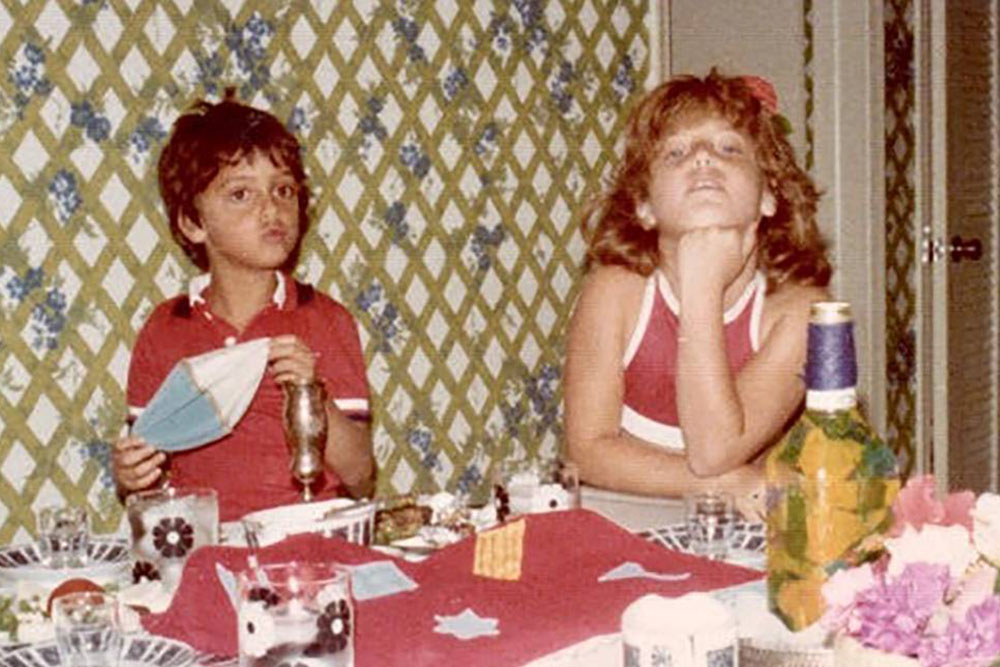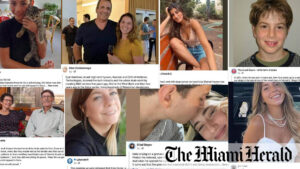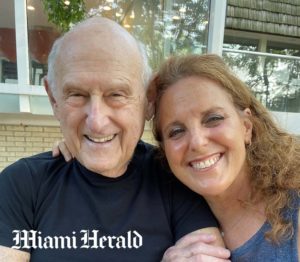I came to California giddy.
It was 1999 and the plan was to move from Boston for my husband’s medical fellowship at University of California San Francisco.
What could be better than moving to the West Coast for one year? I was giddy about living in our tiny, sunlit rental in Chinatown. Giddy about exploring a whole new world of sights and experiences with our 2-year-old daughter. But in some private, hushed recess of my mind, I was most giddy about something else: a slate wiped clean; a world where no one knew about Danny.
Danny was my little brother. He still is, somewhere in the universe, or at least that’s what I want to believe. My mom and I like to think we hear him on the wind, or whenever a dragonfly whirls by, a sign from the day of his funeral, when dragonflies inexplicably covered our window screens.
These days, I bring Danny into the conversation, but it’s always a conscious decision, and always a hard one. For decades, I sealed Danny’s story off from the rest of my life. He was a painfully private secret that no one should be burdened to know.
Growing up, we weren’t the kind of family who had dark secrets. We were the people in insurance commercials, a happy family of five. Danny was the youngest of us three, a beautiful boy with a messy mop of chocolate brown hair, a shy smile and a deep intelligence. He was a noticer; his planet-wide brown eyes saw past people’s words and took everything in.
Our childhood was wrapped in love and play. While our older brother was out doing cool things, Danny and I were a team, racing our bikes around the block, building forts, making lemonade stands.
But no amount of love protected him. As he grew older, his extreme sensitivity to the world’s unpredictability and roughness began to crush him, until, at the age of 14, he disappeared into an intractable depression.
Denial, then depression
Mental illness was not even remotely a part of society’s lexicon back then, and we were at a loss about everything but this: We would do everything possible to help Danny — and no one would know. We assumed his funk was a phase, and we wanted to shield him from the burden of people thinking that something was “wrong with him” when he came out of it.
But the weeks turned to months, and as denial gave way to desperation, my family — my healthy, whole, loving family — began a harrowing, fourteen-year slow-motion trauma. In private. First came the therapists, then the endless march of medications, then the psychiatric hospitals.
Just as millions of other families are doing today, we waged a war against an enemy that we couldn’t see and didn’t understand. We became adept at living in two worlds: the one we lived in front of everyone else and the other with Danny, lost in a relentless, hubris-driven battle to save him, as if the right words or strategy ever could.
On May 16, 1996, after fighting to get better so hard and so long, in an apparent accident in which he tempted fate one too many times, Danny died. He was 27 years old and stronger and braver than any of us would ever be. Along with the grief and despair of losing him, the cost of our privacy came home to roost. Somehow, we had to find the language to convey to our stunned community a history they knew almost nothing about.
And so, coming to California in 1999 was a welcome reprieve. Here, I could escape that part of my identity and get back to living in just one world, the world of my own beautiful little family.
But then a new friend would ask if I had siblings, and I was stuck. If I answered that there were just two of us, my big brother and me, I felt like I was lying. But what a buzzkill it is to tell the truth sometimes. Who wants to drop a bomb on a tea party?
Honesty fastest path to connection
It’s taken me most of my five decades to learn: At a certain point, privacy veers into a loneliness, a destructive isolation. And that isolation can exact a profound cost to everyone involved. At the time, we were certain we were doing the right thing by protecting Danny’s privacy. Looking back, I am haunted by the prospect that our being wed to privacy made his excruciating struggle even worse, because beyond our love and the capricious care of professionals, he was alone.
Denial kept us from another truth: that we were also protecting ourselves. From judgment, from discomfort, from the discomfort of others, from the stigma and shame of mental illness — which is never anyone’s fault but feels like it is.
Keeping secrets also exacts a high toll on the secret-keeper. Spending years split between those two worlds changed me. It pumped something unnatural into my cells. I became so adept over the years in editing myself to the outside world, I unwittingly lost access to a part of myself, my inner life, and my ability, as someone who always wanted to become a writer, to write.
When you hide the hard parts of your life from others, you put up an invisible wall. You dislocate yourself from one of the most holy things of all — an authentic connection to others. Because honesty is the fastest path to human connection and healing.
We live in a world where it’s easy to curate a certain version of ourselves, to build a brand of choice. But brands don’t really work for the soul, do they? Brands don’t allow for the truth and complexity of who we really are.
Kids, families suffering
Trauma and illness, physical or mental, shapes us. I was 17 when Danny first got sick. His illness and death changed the trajectory of my life. Today, as much as I still love being with others, those years drained my well permanently on some level, leaving me with a limited psychic bandwidth for relationships and a constant yearning for quiet and space.
Today, I know I am only part of who I would have been, in some ways for the better, in some ways for the worse. I’m still learning to accept that that’s OK, that that’s me, part of my whole story — and to be OK with it even when others sometimes aren’t.
My husband’s one-year fellowship in the Bay Area turned into 25 years, and our daughter is now 27 with a 23-year-old brother. But it’s only been in the last decade — as I slowly found my way back to writing and the sharing of my family’s story, which has brought in its wake an outpouring from people saying, “That’s my story, too” — that I’ve learned how deeply universal our family’s struggle is.
It’s no secret that our young people’s mental health crisis has reached epic proportions that are only growing. I think about the untold millions of kids and families suffering in aching silence, as my family did, perpetuating an isolation that only increases their pain.
And so it is from a place of deep empathy, if you are among them, that I ask: What is the cost of your silence to those you think you’re trying to protect? And what is the spiritual and psychological toll of editing those stories out of your lives?
As our world reels with instability and division, the question of living an authentic and honest life may seem indulgent. But what could be more important than finding the courage to share our full story and selves, so we can live a life that is honest and whole?
And what greater gift in return than to connect to the powerful healing force of true human connection?
This article was originally published in The Kansas City Star.





